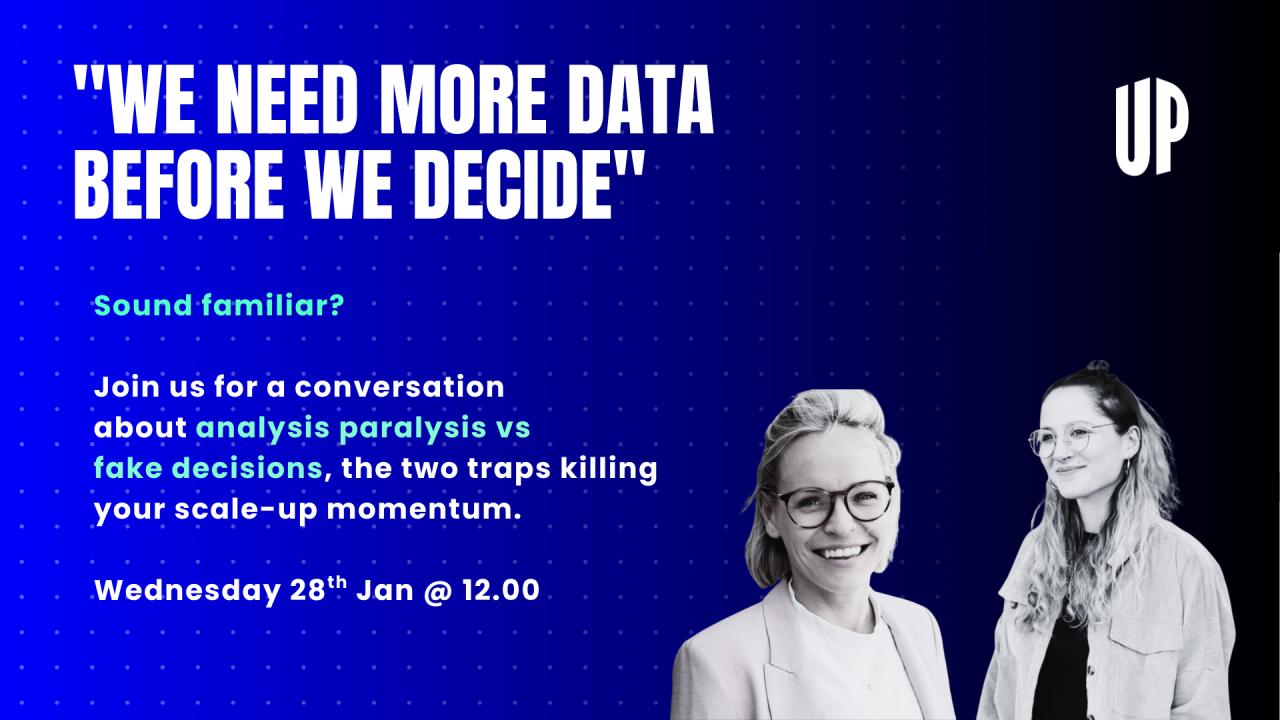Why You're Not Creating Content (And How AI Actually Helps)
%20(1).png)
Can we talk about the thing that's probably sitting on your to-do list right now, making you feel slightly guilty every time you see it?
"Create some content for LinkedIn"
"Write that blog post"
"Share your thoughts on [insert industry topic]"
You know you should be doing it. Your marketing team keeps asking. You see your competitors building thought leadership whilst you're heads-down shipping product.
But honestly? You've got more important things to do than stare at a blank page trying to remember how to "write for marketing."
And that's completely fair.
Here's the thing nobody says out loud
You didn't spend years building deep technical expertise to become a content creator.
You're good at solving complex problems, building products, explaining things to customers, closing deals. Ask you to jump on a call and explain your technology to a prospect? You're brilliant.
Ask you to write a blog post about it? That's a different skill entirely - one you didn't sign up for and probably don't enjoy.
The traditional content creation process looks like this:
- Marketing asks you to write something
- You say "yes, sure" with good intentions
- Three weeks pass
- You feel guilty
- You either write something rushed that doesn't sound like you, or you just... don't do it
- Repeat forever
Sound familiar?
One of our clients (CTO of a fintech platform) told me: "I honestly didn't think we had anything interesting to say. Turns out we did - I just didn't want to spend my weekends writing LinkedIn posts about it."
What if you didnt have to write anything?
I'll be honest - 18 months ago, I was pretty skeptical about AI for content. Seemed like a fast track to creating more generic noise that nobody wants to read.
But here's what changed my mind: we stopped using AI to write content and started using it to capture what founders and technical experts already know.
Instead of asking you to write, we just ask you to talk.
Then AI does the boring bit of turning those conversations into content.
We've been testing this with dozens of tech founders over the past 18 months, and I've got to say - we made basically every mistake you can make before we figured out what actually works.
Let me show you what we've learned.
How this actually works
Step 1: Just have a conversation (60 minutes)
No preparation needed. No slides. No trying to sound "marketing-y."
Just talk about something you're thinking about:
- That interesting customer problem you solved recently
- Why you think the industry is getting something wrong
- What you're seeing in the market that others are missing
- That technical challenge that kept you up last night
We record it (with something like Riverside or Tl;dv), it gets transcribed automatically, and you're done. Back to your actual work.
When we first started doing this, we thought we'd need perfectly structured interviews. Turns out the best content comes from you just getting excited about something and going on a tangent.
Step 2: AI finds the interesting bits (15 minutes of our time)
We upload that transcript and ask AI to identify:
- Your most surprising or contrarian insights
- The strongest quotes where you really showed conviction
- Stories or specific examples you mentioned
- Moments where you explained something really clearly
We validate these against customer insights gleamed from customer interviews and sales calls transcripts. The AI surfaces the bits that will actually make people stop scrolling.
Here's something we learned the hard way: if you just ask AI to "find interesting stuff," the output is terrible. We spent about six months figuring out how to prompt it properly so it actually finds the gold.
Step 3: We add context so it's not generic (this is the crucial bit)
Early on, we'd take what founders said and just turn it into content. Sometimes it was great. Often it was stuff everyone else was already saying.
Now we cross-check everything against:
- What your audience is actually talking about online
- What your competitors are already saying
- Which topics are overdone versus underexplored
- What questions your prospects are asking
This is what stops us creating content about something you find interesting but your audience finds boring (because they've heard it a thousand times already).
One client put it perfectly: "The research-backed approach actually satisfied my engineering brain. We weren't just guessing what was interesting."
Step 4: Create multiple formats (30 minutes of our time)
That one conversation becomes:
- 4-6 LinkedIn posts
- Email newsletter content
- Blog article outlines
- Quotes for your sales team
- Maybe some short video clips
All in your voice. Not "marketing voice" - your actual voice, just adapted for different formats.
Step 5: Quick review from you (5-10 minutes)
We send you the drafts. You spend 5-10 minutes checking they're accurate, maybe adding a bit of nuance, fixing anything that doesn't sound quite right.
But you're editing, not creating from scratch. Big difference.
Total time investment from you: 60 minutes of conversation + 10 minutes of review = 70 minutes for 4-6 weeks of content.
What this looks like in practice
Anthony runs a data governance platform. Brilliant founder, experienced team, but their LinkedIn presence? Virtually nonexistent.
The problem wasn't lack of expertise - Anthony and his team had incredible insights from working with everyone from hedge funds to investment banks. The problem was getting those insights out of his head.
We started recording his customer calls (with permission) and his internal team discussions. Just hit record, nothing fancy.
Every week, we'd identify the most interesting 5-minute segments and turn them into content. He'd review each piece in under 10 minutes.
Within three months:
- Posting consistently 3x per week (up from maybe once a month when he remembered)
- Two enterprise leads directly attributed to thought leadership content
- Getting approached at conferences by people following his content
His take? "I'm now spending less time on marketing but getting way more impact. And I don't feel guilty about my empty LinkedIn profile anymore."
Laura runs a fintech platform. They'd tried everything to create content - setting deadlines (missed them), offering to ghostwrite (couldn't capture the technical depth), even threatening not to invite her to the Christmas party (okay, not really).
We changed the approach. Instead of asking Laura to write, we just scheduled 30-minute conversations every fortnight about whatever he was thinking about that week.
Within 6 weeks:
- 15 LinkedIn posts created
- 2 detailed blog articles the sales team actually used
- Zero complaints about marketing being a time-suck
The turning point? Laura started bringing ideas TO the marketing team instead of avoiding their requests.
She told me: "I’m an engineer - everything is either on or off. This approach actually worked for me because we could see it was based on what I actually said, not somebody else’s interpretation."
The Mistakes We Made (So You Don't Have To)
Trying to make it "professional"
Early on, we'd polish the content to make it more "marketing-friendly." It was awful - generic and boring, and completely lost the founder's authentic voice.
The best performing content keeps your informal language, your technical terms, even your tangents. That's what makes it interesting.
Not checking for AI hallucinations
We learned this one the hard way. AI outputs can look beautiful and polished but be completely wrong about technical details.
Now we always ask the AI to show us HOW it analysed things, so we can spot when it's made stuff up before you even see it.
Creating content in a vacuum
Early projects, we'd create content based purely on what the founder said. Sometimes it landed well, often it didn't.
Turns out you need to know what the market is actually talking about. Creating content about your brilliant insight doesn't help if three competitors said the same thing last month.
What you actually need
The tools:
- Riverside or Tl;dv for recording and transcription (free tiers available)
- ChatGPT Plus or Claude Pro (£20/month)
- Optional: Super Whisper if you want to prompt the AI by talking instead of typing
The time from you:
- 60 minutes every couple of weeks for a conversation
- 10 minutes per week to review content
- That's it
The mindset shift: Stop thinking "I should write this." Start thinking "I'll just talk about this."
You're already explaining this stuff to customers, to your team, to investors. We're just capturing it and repurposing it.
This isn't about outsourcing your brain
Look, the last thing you want is generic content with your name on it that doesn't sound like you and gets facts wrong.
That's not what this is.
This is about capturing what you already know and think, then doing the boring work of turning it into different formats. You stay in control - you review everything, you approve everything, it's your voice and your insights.
One founder told me: "This is the first time marketing has actually made my life easier rather than adding to my to-do list."
That's the goal.
Want to Try This?
If you've got expertise that should be out there but no time (or desire) to write it all yourself, this approach might work for you.
Start small: schedule one 60-minute conversation about something you've been thinking about. See what comes out of it.
Fair warning - the first one might not be perfect. Ours certainly weren't. But you'll quickly figure out what works for you.
If you want to chat about how this could work for your specific situation, just hit reply. I'm not going to try and sell you anything - I'm genuinely just interested in how different founders are solving this problem.
Here's to getting your insights out there without it feeling like homework.
P.S. The "but my content is too technical" concern comes up a lot. We're doing this with founders in payment infrastructure, risk management, data governance - genuinely complex stuff. The key is never letting AI invent technical facts. It only surfaces and repackages what you actually said. You're the technical expert - AI is just the note-taker and formatter.
P.P.S. We're still figuring this out too. If you try it and discover something that works (or doesn't), I'd love to hear about it. We're all on this learning curve together.



.png)
.png)

